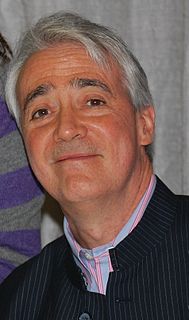A Quote by Terry Pratchett
People were people, even if they had four legs and had called themselves names like Dangerous Beans, which is the kind of name you gave yourself if you learned to read before you understood what all the words actually meant.
Related Quotes
Stupid people like to delude themselves that while they may not be clever, they were at least able to compensate with feelings and insights denied to the intellectual....It was precisely this kind of false belief that made stupid people so stupid. The truth was the clever people had infinitely more resources from which to make the leaps of connection that the world called intuition. What was 'intelligence' after all, but the ability to read into things?
She'd always known he loved her, it had been the one certainty above all others that had never changed, but she had never said the words aloud and she had never meant them quite this way before. She had said it to him, and she hardly knew what she had meant. They were terrifying words, words to encompass a world.
....I understood why those who had lived through war or economic disasters, and who had built for themselves a good life and a high standard of living, were rightly proud to be able to provide for their children those things which they themselves had not had. And why their children, inevitably, took those things for granted. It meant that new values and new expectations had crept into our societies along with new standards of living. Hence the materialistic and often greedy and selfish lifestyle of so many young people in the Western world, especially in the United States.
Actually this is really funny - one time she accidentally forgot to leave a note and I had no idea she had even moved. I was living in the house with a beautiful Mexican family for three months before I realized they weren't my cousins visiting from out of town. They were so nice. They called me "Quien es, quien es," which I thought was a beautiful name.
I have my great grandmother's recipe for black beans, all the way from Cuba, and I know how to make those. I'm actually pretty good at it now. But my first time, the beans actually exploded in the pot, so I had black beans just dripping from the ceiling - which is actually a dream come true for most Cubans. It was a nightmare to clean.
There was once a man, Harry, called the steppenwolf. He went on two legs, wore clothes and was a human being, but nevertheless he was in reality a wolf of the steppes. He had learned a good deal of all that people of a good intelligence can, and was a fairly clever fellow. What he had not learned, however, was this: to find contentment in himself and his own life.



































